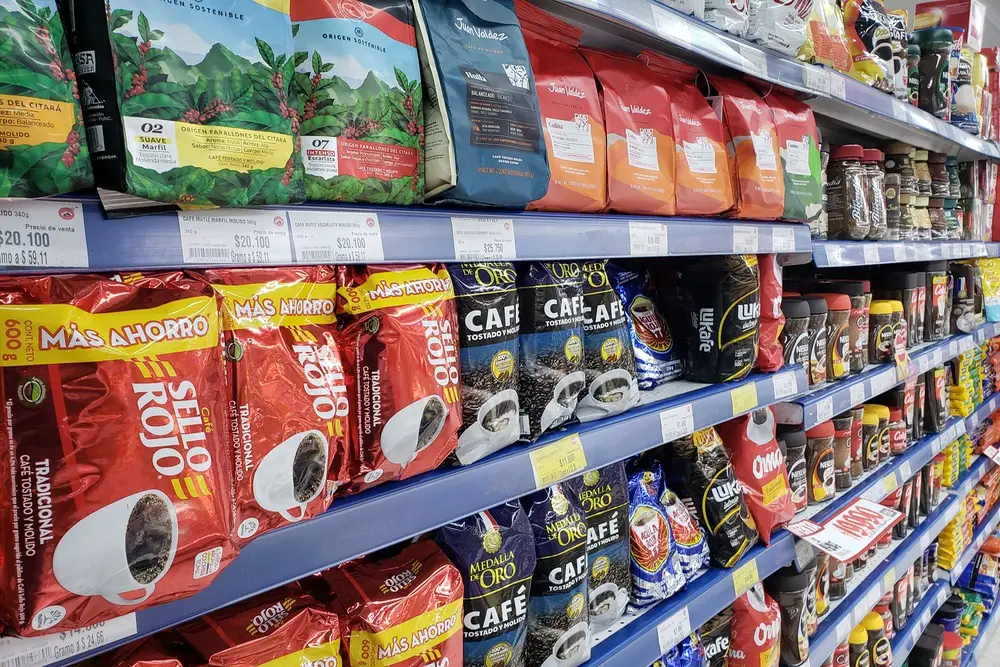Can coffee relieve asthma? It sounds like a home remedy, but there are reasons coffee might be an easy way to relieve asthma symptoms and promote overall health.
Table of Contents
How do asthma medications work?
There are two main types of asthma medications, those for long-term asthma control and those for quick relief.
Long-term medications are usually taken once or twice a day. They are designed to prevent the muscles around the airways from becoming inflamed.
Fast-acting drugs, or rescue inhalers, are drugs that are inhaled and start working immediately. They help open the airways when they are narrowed. These types of asthma medications are typically used when needed and are often used for exercise-induced asthma.
These inhaled asthma medications go straight to the lungs, where the problem lies. Once the drug is inhaled, the muscles begin to relax and the airways open. This allows more air to get into the lungs.
Coffee and asthma – a favorable combination?
First, and perhaps the most obvious, hot coffee gives off steam. During an asthma attack, the airways swell and narrow, making it difficult to breathe and causing wheezing or shortness of breath. The vapor from hot liquids can help open the airways.
Steam also helps relieve complications like bronchitis and coughs by loosening phlegm.
Caffeine and asthma
Although caffeine isn’t as potent as asthma medications and inhalers, it can also open the airways. Even small amounts of caffeine can improve lung function, and the effects can last up to four hours.
Caffeine is a weak bronchodilator. This means that coffee can help reduce muscle fatigue throughout the respiratory system.
Caffeine as a bronchodilator
In 1993, Dr. Scott T. Weis of Harvard Medical School studied 20,000 asthma patients and found that those who drank coffee regularly had a third fewer symptoms than those who did not.
Caffeine, the stimulant found in coffee and tea, is chemically very similar to theophylline, a drug used to treat asthma and bronchitis. In Weis’ study, tea had no effect on asthma patients, possibly because tea has lower caffeine content than coffee. A cup of brewed coffee contains between 40 and 180 mg of caffeine, a cup of tea between 25 and 110 mg.
Caffeine before a lung function test
People who have asthma or suspect they may have asthma have their doctor do a lung function test. This test measures how well you breathe and how well your lungs are able to deliver oxygen to the rest of your body.
Because coffee can relieve asthma symptoms, caffeinated beverages should be avoided at all costs prior to this test. Consuming caffeinated beverages before the test can falsify the results of the lung function test. This can result in not being prescribed the right medications you need to manage your asthma.
Is coffee helpful in treating asthma?
Asthma patients can have peculiarities in their treatment. It is therefore possible, after consulting a doctor, to use coffee as part of asthma treatment. However, due to how the body works and the medical condition of each asthmatic patient, the changes perceived when drinking coffee may vary.
If you experience asthma symptoms, first make yourself a cup of coffee. However, do not drink the whole cup. Drink about a third of the cup and wait about 10 minutes. After this time, see if you feel better.
If you still don’t see a positive change, reheat the cup and drink another third of the cup. Wait another 10 minutes.
If you still don’t feel better, finish the cup of coffee after warming it up. If you feel better, that’s fine, but if you don’t feel a positive change, caffeine may not be the cure for your asthma. If the positive feeling is weak, you may need to make another cup of coffee.
Finally, if you want to continue the treatment with coffee, you can choose the coffee that tastes good and helps you. At this point, the ideal is to choose a quality coffee that suits the tastes of the person who is going to drink it to treat their asthma. There is nothing like a treatment that is pleasant to the taste.
What are the contraindications for using coffee to treat asthma?
You will find that coffee is not recommended as an alternative treatment for asthma for the following reasons.
The caffeine content of different brands and preparation methods can vary greatly. For example, beans from different regions may have different levels of caffeine. The temperature, degree of roasting of the beans and the brewing time also affect the caffeine concentration. This makes accurate dosing difficult.
In addition, while caffeine is effective to some extent, it can interfere with current treatments for asthma attacks, such as B. the salbutamol inhaler, and is more suitable for asthma prophylaxis than theophylline.
On the other hand, some studies have been conducted to determine the effectiveness of caffeine as a bronchodilator. They say that one would have to consume between 4 and 8 cups of coffee in a short period of time to feel any effects. However, it is not recommended to drink this amount of coffee in a short period of time.
Other medicinal uses of caffeine include treating neonatal apnea (breathing failure in infants), and it is used in low doses with acetaminophen, ibuprofen, and codeine to relieve pain. However, its effectiveness in treating asthma and chronic asthma is low, while there are better and more effective treatments.
Conclusion
It’s always a good idea to look for natural remedies to treat or cure certain diseases. Medication is not always the ultimate truth. Medicines can also be very expensive. means, such as Drugs such as caffeine, while helpful in this case, do not provide the relief some patients need.
For this reason, coffee should not be used as the sole treatment for asthma, but can complement asthma treatment.
Since coffee widens the airways, it makes breathing easier and helps the asthmatic patient. Research suggests that coffee may relieve some asthma symptoms. Some of the effects of caffeine may have a positive impact on lung function in asthmatics.
Given the discrepancy in the use of coffee for asthma sufferers, it’s best to consult your doctor when considering using coffee to control your asthma.



